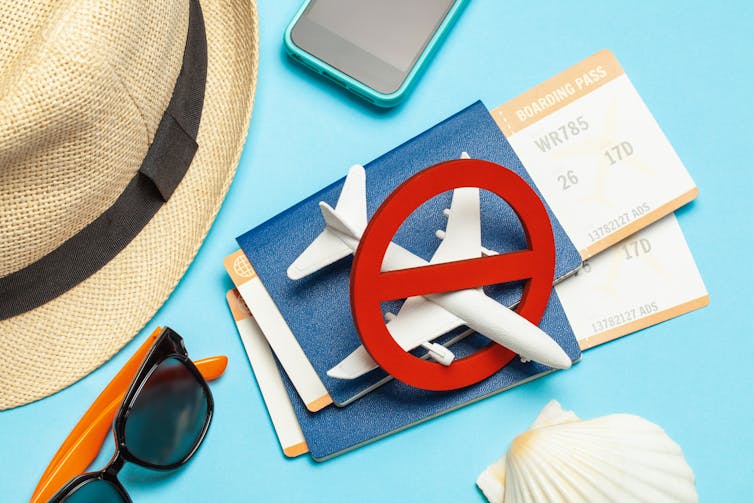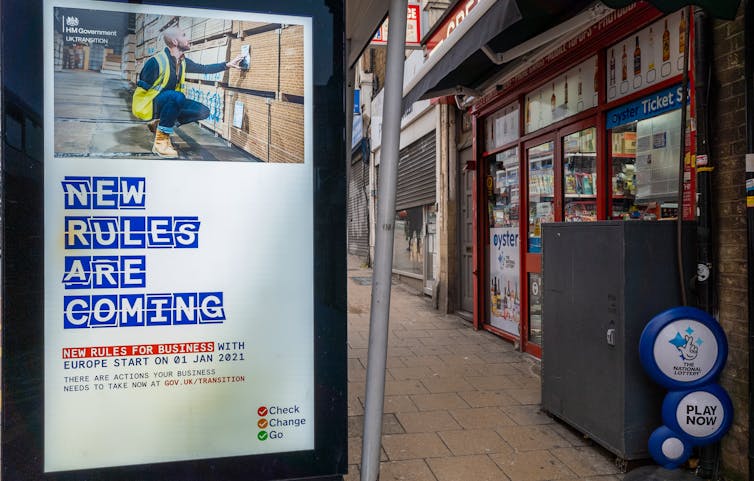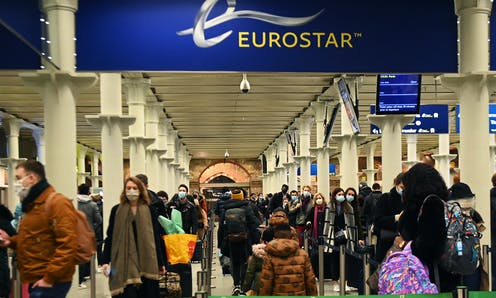The combined forces of COVID-19 and Brexit have created massive uncertainty over where British people can and cannot travel.
A number of countries rapidly imposed travel bans on the UK in an attempt to control the spread of a new variant that was identified as spreading across the country. Most European countries halted land and air transportation links with the UK or reinforced quarantine periods, as did Canada, India, Russia, Colombia, Kuwait and Turkey. Government advice and rules have been changing regularly.
But more confusion awaits after December 31 at 11pm. The UK left the EU on January 31 2020 and the transition period after Brexit comes to an end on this date. From January 1, British citizens will lose their automatic right to free movement in the European Union as a result of the nation’s decision to vote to leave the bloc.
Rules announced on December 9 stressed that under COVID-19 restrictions, Britons could be barred from EU entry on January 1 2021, when Britain becomes a “third country” to the European Union unless their travel is deemed essential.
From January 1 2021, the relationship between the UK and the EU may be determined by the trade agreement that is currently being negotiated. It may be that travel arrangements are agreed in that deal but, so far, talks are stalling on other issues.
As Britain becomes a “third country” (any country not in the EU) from January 1 2021, British residents cannot assume the right to visit EU countries while COVID restrictions are in place. When the UK was an EU member state, travel within the EU was regulated by the fundamental principle of freedom of movement. Now that the UK is no longer a member state, it can therefore no longer expect automatic travel rights.
On October 22, the EU Council instructed member states to gradually lift travel restrictions for residents of only eight “third countries” with low coronavirus infection rates. These included Australia, New Zealand and Singapore. All others, including British residents from January 1 (as the UK becomes a third country), will not be allowed to travel to the EU until the COVID-19 situation allows this travel restriction to be lifted. All the countries granted an exception had significantly less severe COVID situations than many other parts of the world so we can see there is some way to go before the UK meets such a hurdle, even beyond the current bans that have been brought in because of the new virus strain.
Holiday planning
These rules mean that British tourists hoping to travel to Europe in the new year, including those who may have flights booked already, will need to cancel or postpone their trip until the restrictions are lifted or Britain is added to the list of safe “third” countries.
Understandably, the pandemic, new strains of the virus, restrictions around the world and the expected third wave following the Christmas holiday prevent short term optimism.
Read more:
What are Australian-style and Canadian-style Brexit trade deals?
Until COVID-19 is contained and more people are vaccinated, both domestically and internationally, it is unlikely that much non-essential travel will be allowed. Realistically, this should be in late spring or early summer time.
If British tourists are prevented from travelling due to government restrictions, they should be refunded by suppliers, or, if they wish, they can accept value vouchers for future use.

ADragan/Shutterstock
After Easter, we should see restrictions lifted and more international travel activity. Global tourism has been haemorrhaging as a result of COVID-19-induced restrictions and the consequent economic recession.
Most governments will be observing the COVID situation very carefully and evaluate when it will be safe to reduce restrictions and remove travel bans. It is in the best interest of all stakeholders that this happens as soon as it is safe to do so.
It is worth noting, too, that many European countries are very keen to welcome back British travellers when it is safe to do so. Several kept their borders open, even when the epidemiological situation in the UK was much worse than in many tourism destinations.
The Brexit impact on travel
After COVID restrictions are lifted, most British travellers will find that Brexit brings some minor inconveniences. They will have to use “all passports” or “visa not required” lanes at borders and will travel similarly to non-EU citizens.
When the European Travel Authorisation and Information System (ETIAS) is introduced in the second half of 2022, visa-exempt, non-EU citizens will need to apply for travel authorisation online before their trip and pay a fee of 7 euros.
Other than that, they will be restricted to staying less than 90 days in a 180 period in the Schengen region.

Yau Ming Low/Shutterstock
One thing we’ve learned during the COVID era is how much we miss travelling. In the short term, if the virus is contained and restrictions relaxed, short and mid haul trips, often arranged at the last minute, will be the best option. Gradually, we will be able to travel again, create memorable experiences and reconnect with loved ones in wonderful places around the world.
![]()
Dimitrios Buhalis receives funding from the European Commission for research on digitisation and tourism.
Dimitrios Buhalis works closely with the United Nations World Tourism Organisation, the European Travel Commission and the Pacific Asia Tourism Association.











